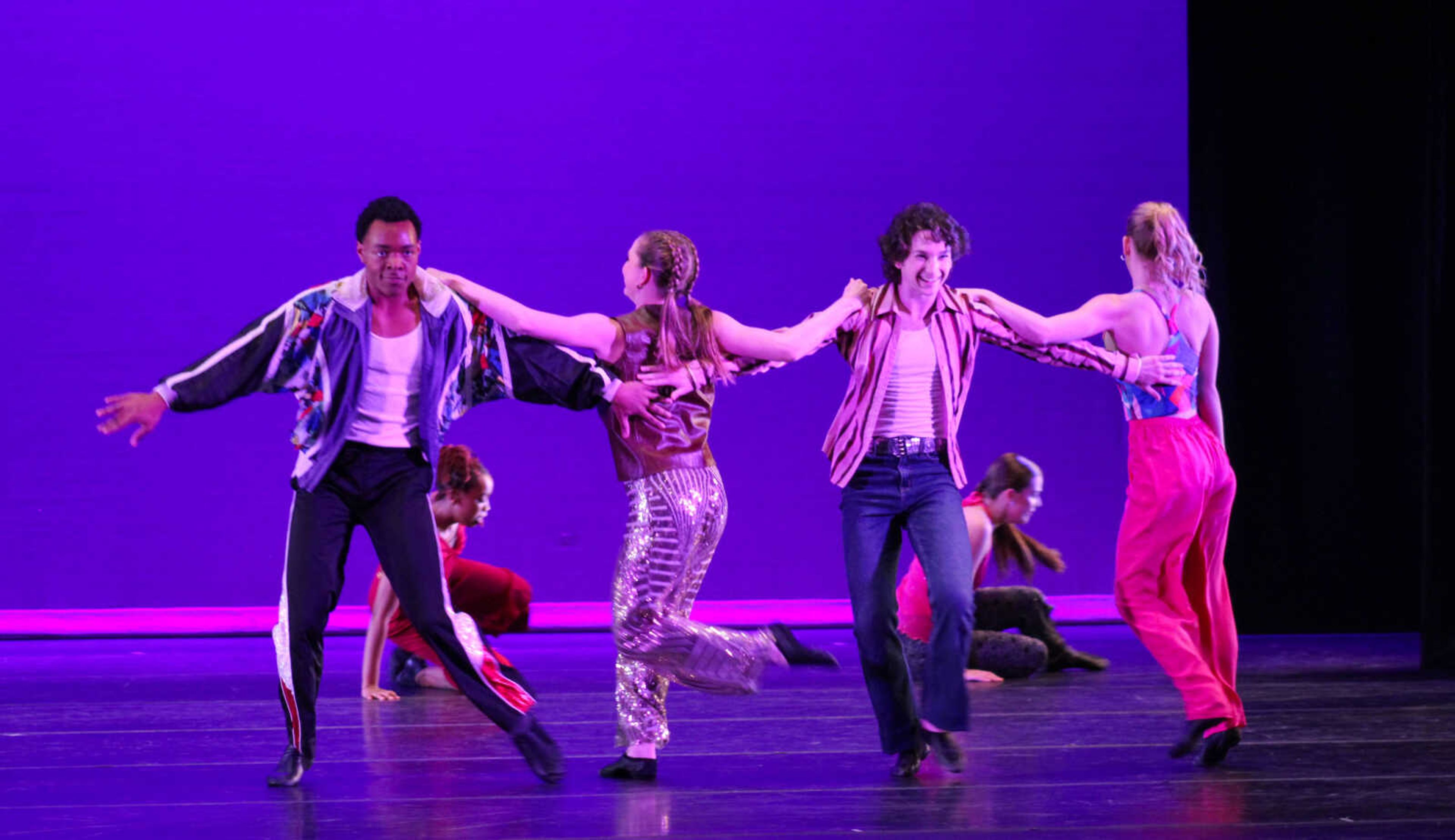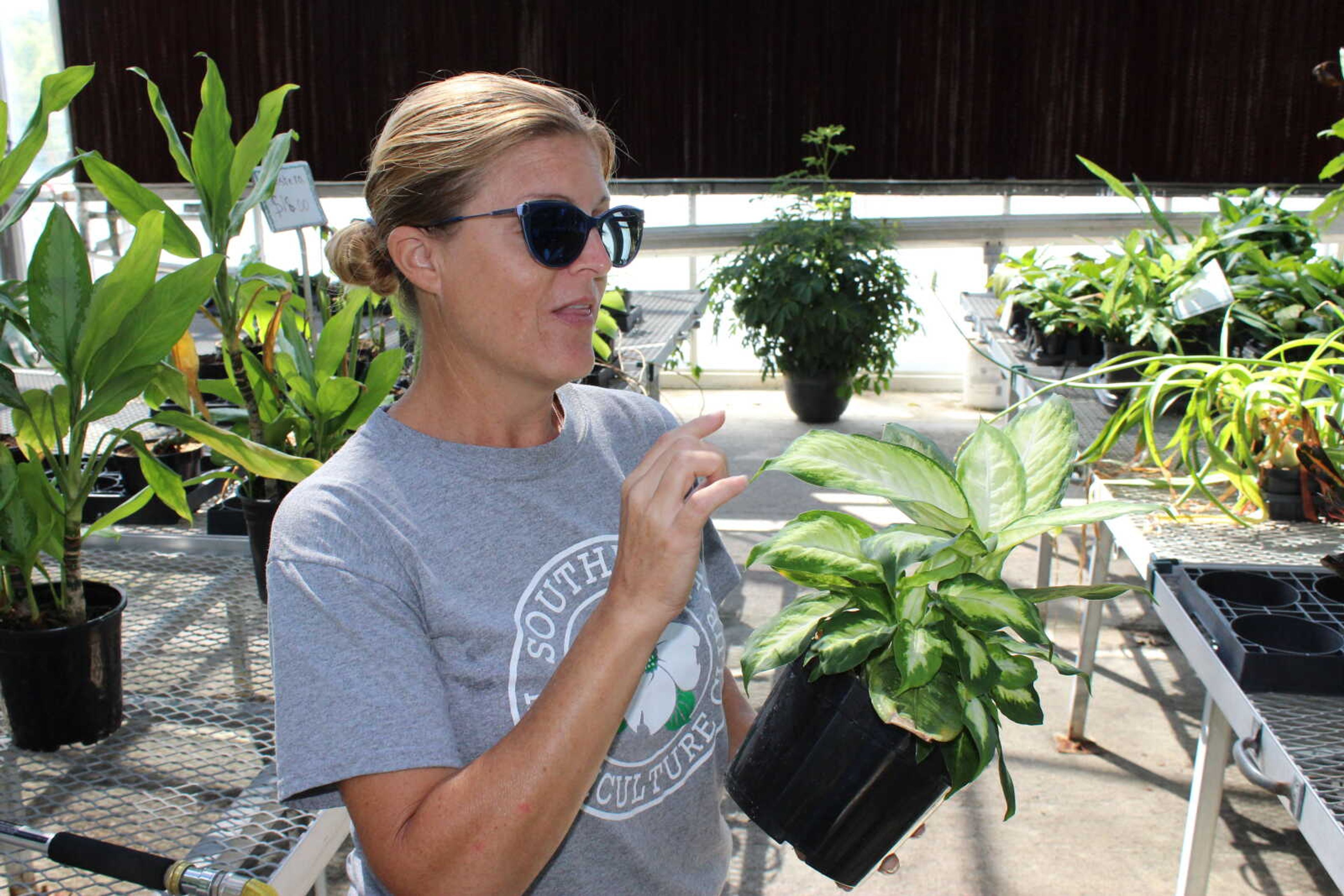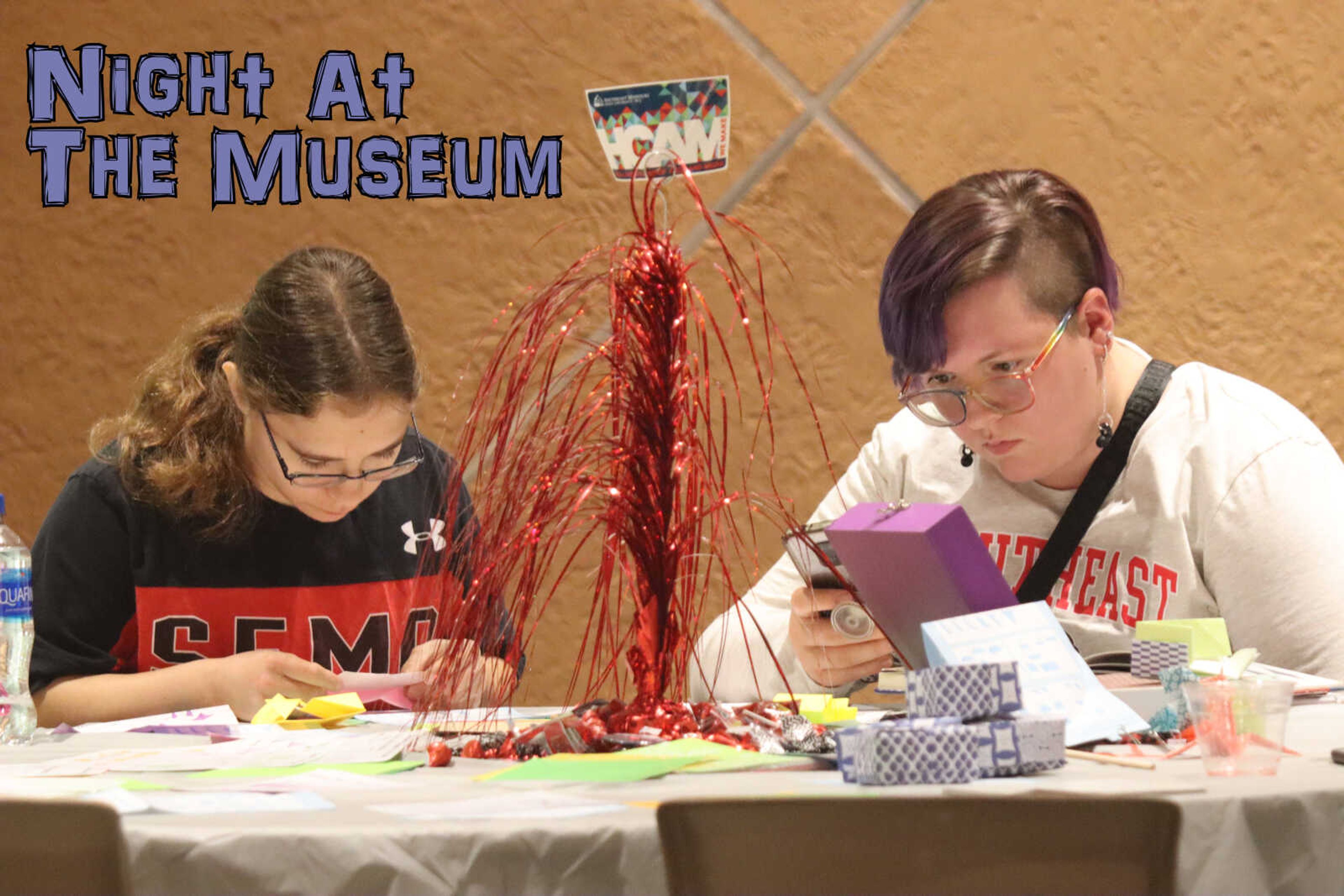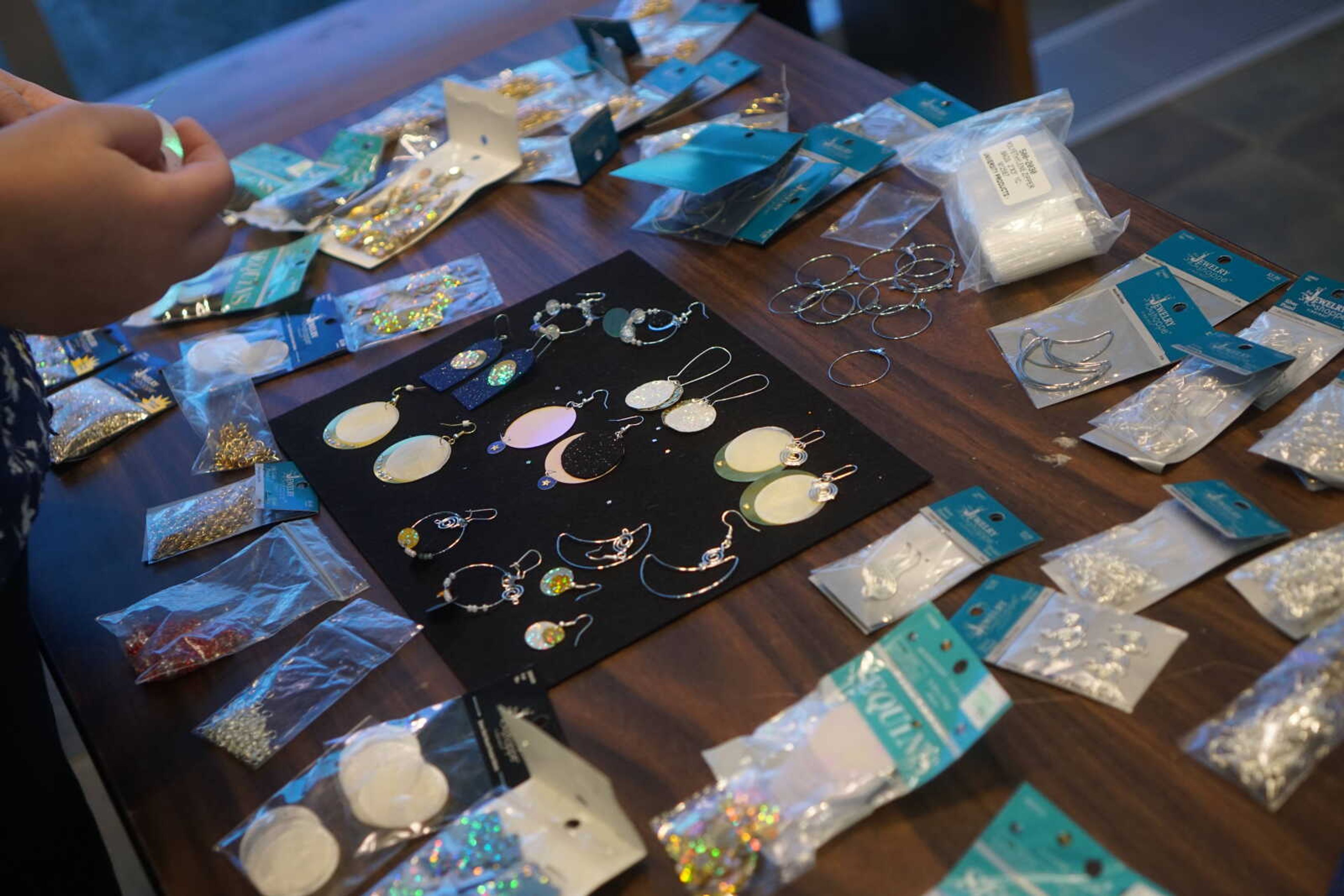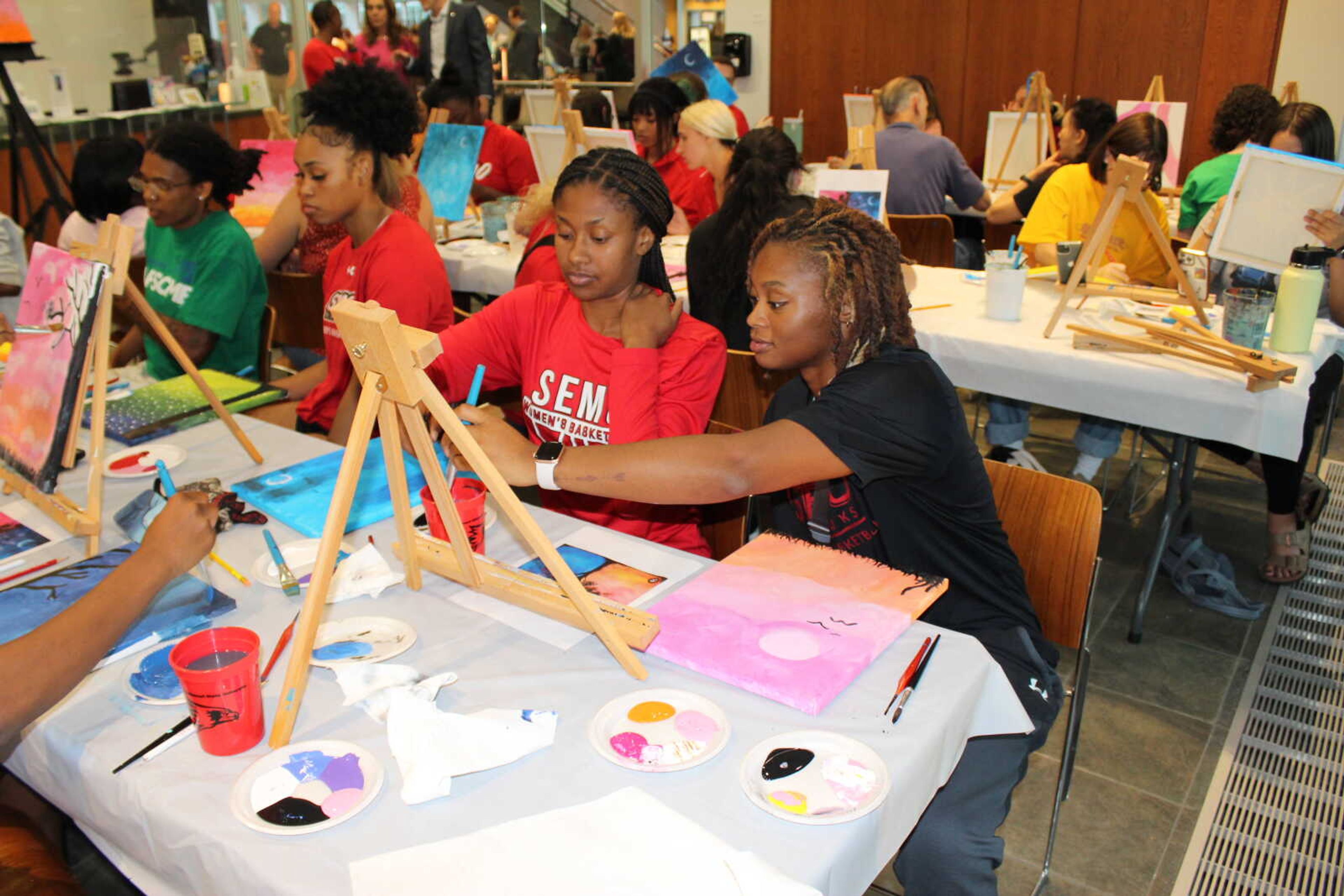Printmaker Katrina Andry led a virtual artist lecture on Feb. 10 on the theme “Black Hair,” a presentation that highlighted the upcoming “Bridges” event for the Holland College of Arts and Media.
Professor of Arts Benjamin Heu stated, “‘Bridges’ is an interdepartmental collaborative event bridging Black History and Women’s History months by featuring work composed, written and performed, representing African Americans, women or both.”
According to Andry’s website, she earned recognition as one of the top 50 printmakers in the September 2012 issue of Art in Print magazine. She resides in New Orleans, where she operates a studio. Her work has also been featured at the Hammonds House Museum, the Pensacola Museum of Art and the New Orleans Museum of Art.
Andry began her lecture by explaining the process of printmaking.
“The type of printmaking I do is a color reduction woodcut. You use one block of wood to make one print, and you add on to it. You cannot reprint your work. If you mess up, you have to start over,” she said.
The printmaker uses iridescent mylar, a luminous polyester film, on her prints to draw attention to the hair.
“Black curly, coarse hair is associated with Black people. If you see a silhouette of somebody and they have really curly hair, the assumption is that they are Black,” she said.
“Hair is not related to ethnicity but rather a race,” Andry explained. “For Black people, [hair] plays a much larger role because it is a stark contrast to what is considered ‘normal’ hair in our society,” Andry said.
While the printmaker has not produced a series about hair specifically, it is still a focus of her work. “Hair can be used to define otherness in certain groups of people,” Andry said.
In describing her piece “I Am Not Your Chocolate Fantasy. Don’t Touch My Hair,” Andry noted makeup manufacturers often use food names to describe dark-toned skin colors. Labels such as mocha pecan, walnut cinnamon and others further promote otherness, she said. Andry said an additional motivation for the work was her pregnancy. During it, she experienced the habit of some people who, without permission, touched her stomach and then her hair.
Andry’s lecture was funded by the Division of Equity, Access and Behavioral Health, and hosted by Southeast Missouri State University Department of Art and Design. “Bridges” is a free event in Rose Theater on March 1, 2021, at 6 p.m. for a limited number of face-to-face views to conform with COVID-19 safety guidance, in addition to an online viewing that will be live-streamed over the HCAM Diversity and Inclusion Committee’s Facebook page.
